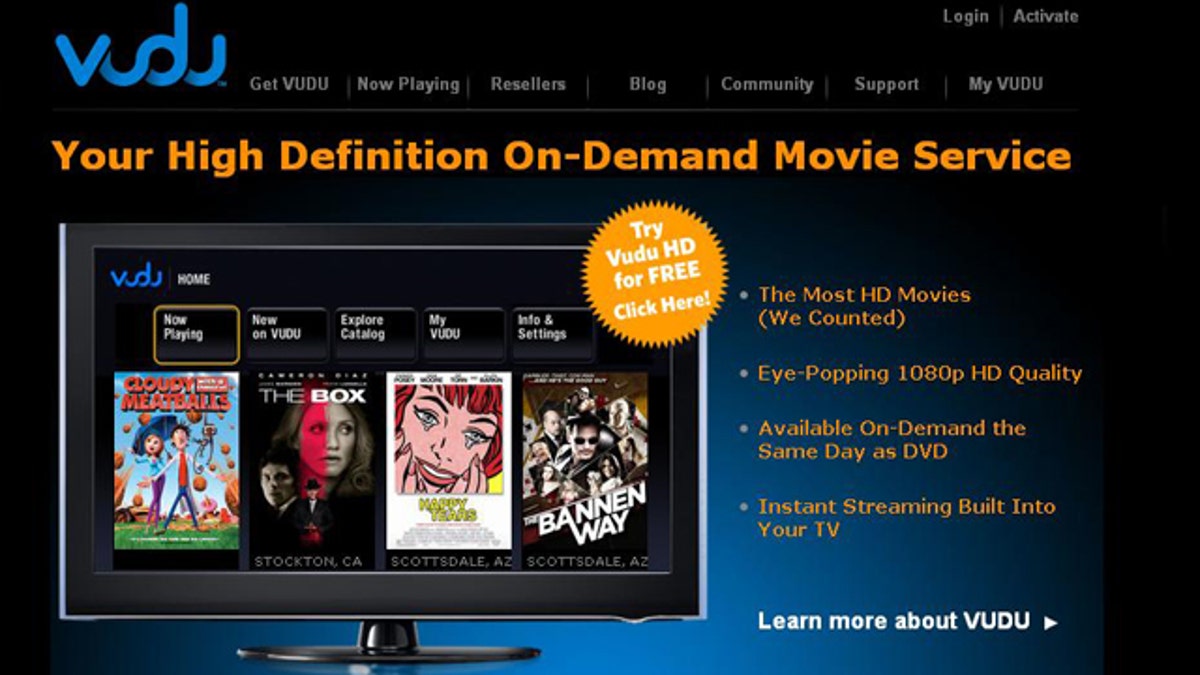
A screenshot of the Vudu Web site. The company's video-on-demand service was purchased by Wal-Mart in 2010 and debuted Tuesday, July 26, 2011. (Vudu)
If anything underscores the long-term threat to cable companies' video service from the Internet, it's the purchase by Wal-Mart of video-on-demand Web service Vudu on Tuesday.
Cable operators, consider yourselves warned.
The danger isn't immediate. Vudu is one of several digital services, including Apple's iTunes and Amazon.com, which sell or rent movies via the Web. Watching programs from these services on a TV, while easier than it once was, remains fussy.
Vudu users need certain TV sets or Blu-Ray players with built-in Web access. Amazon requires compatible devices. Watching iTunes-acquired films on a TV requires an Apple TV box or an iPod connected to a TV. Last year, less than 5% of high-definition TVs sold had Web access, according to Macquarie.
In contrast, some two-thirds of homes with TVs are connected to either cable or phone company-delivered video, according to Nielsen. These offer regular TV channels as well as VOD. Operators like Comcast enhance VOD with free movies. No surprise then that cable VOD has gained more traction than Web services, despite its clunky interface.
But this isn't likely to persist. Wal-Mart has the clout with manufacturers to extend the number of TV's compatible with Vudu. It sold 14.6% of flat-panel TVs in the third quarter, estimates TraQline.
Moreover, some devices with built-in Vudu or Amazon access also connect to other online video, like Netflix's flat-fee streaming service. As more consumers buy these devices, cable operators could see an erosion in VOD purchases and possibly in subscriptions to certain movie channels.
Admittedly, Wal-Mart has failed before to establish a foothold in electronic distribution of video, abandoning a movie-download service a couple of years ago. Even so, the mass merchant has an incentive to make this work.
For more on this story, read the Wall Street Journal.








































